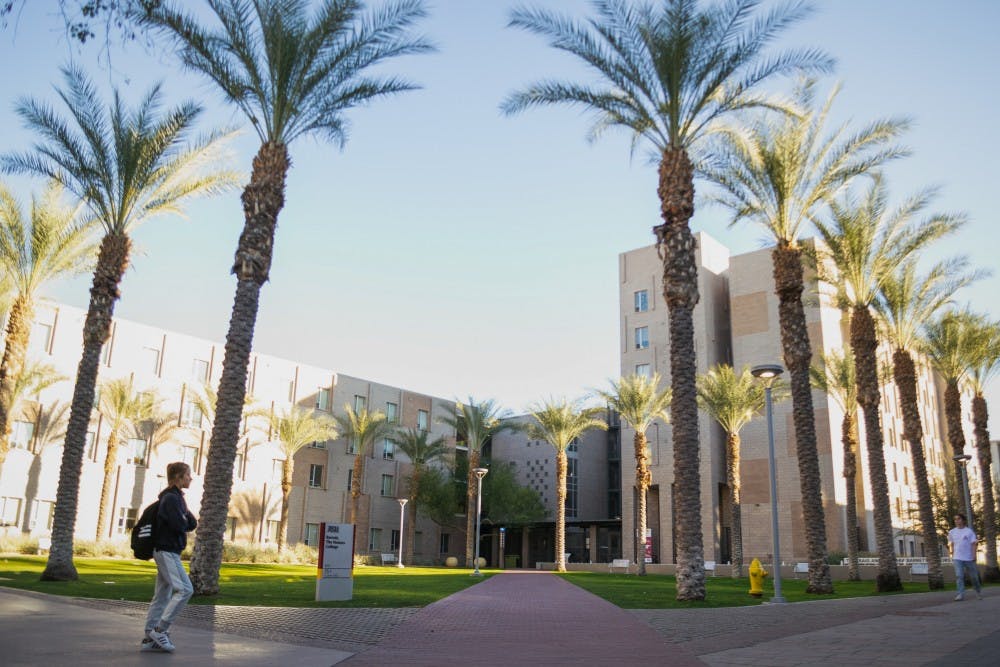The Undergraduate Student Government Tempe senate introduced and passed a senate resolution that opposes a possible fee increase for Barrett students, calling for the Barrett administration to be more transparent about the potential increase.
Senate Resolution 8 is a response to a proposal by Barrett, the Honors College to raise its fee by $250 per semester, bringing the total fee from $750 a semester to $1,000.
The resolution, introduced by USGT Barrett senator Nicole Morote, is meant to reflect the concerns of Barrett students that are on the Tempe campus.
While the resolution opposes the fee increase because of the lack of transparency surrounding it, it's not meant to condemn the Barrett administration from raising its fees, Morote said.
Morote, a Barrett sophomore majoring in marketing, said that the main concern the resolution is meant to address is that students appear to be frustrated by the lack of information available to them.
“There was such a lack of communication from the Barrett administration to the students that I thought they deserve that information,” she said. “It’s not because Barrett’s withholding anything, I just think there’s more that could be done to improve transparency.”
A survey conducted by USGT shows that about 78 percent of students who responded by 3 p.m. on Wednesday either disagreed or strongly disagreed with the statement "I feel that Barrett and its deans have adequately explained to me what programs this funding will support."
USGT senator Justin Fink, a freshman majoring in actuarial science and co-sponsor of the resolution, clarified that the senate is not trying to take a stance on whether or not Barrett should raise its fee.
“The bill is a call to open dialogue between the Barrett administration and its students,” Fink said in an email. “It is not intended to take a formal stance of the fee itself.”
The resolution qualifies this by stating that the reason for the senate’s opposition is that the “increase has not been properly justified to the student body" and that Barrett should make the information more publicly available and host more varied information sessions to "allow for more students to be present and aware."
The discussion was not just limited to the senate. Multiple students came to the meeting to address the resolution during a comment session from members of the audience.
While most students in the audience spoke in favor of the resolution, Risam Johnson, a freshman majoring in landscape architecture, spoke against it.
Johnson, a Barrett student, was concerned that the actions of the senate and other Barrett students were too hasty.
"My major concern with the proceedings here is how quickly things were happening," he said. "I agree we need to ask for more information, but I don’t think the resolution was necessary."
Edward Nolan, a USGT Barrett senator and a senior majoring in political science and biology, agreed that the resolution seemed to come too soon.
"I believe that the passing of SR-8 was premature," Nolan wrote in an email. "I think that the Barrett administration, between publicizing the potential fee increase, and hearing backlash, was not given ample opportunity to remedy the situation."
The resolution passed with 13 votes in favor, one in opposition, and one abstention.
Nolan, who chose to abstain from the vote, is concerned that the resolution may be interpreted incorrectly by students and the Barrett administration alike.
"I think that it has the potential to be construed by individuals as a condemnation of the fee increase itself, when in reality it is a response towards the lack of communication about the potential fee increase," he wrote.
Morote hopes that the resolution encourages the Barrett administration to continue releasing more in-depth information about the fee increase and to hold more public forums for students unable to attend the previous ones.
"The Council of Presidents, Senate President Blinkoff, and myself have gotten a lot of productive discourse and information out of our meetings with Dean Jacobs," Morote said in a follow-up email.
"We look forward to keeping the lines of communication open with Barrett and helping educate the Barrett community about how best to strengthen it," she wrote.
Reach the reporter at krquaran@asu.edu and follow @kiaraquaranta on Twitter.
Like The State Press on Facebook and follow @statepress on Twitter.




